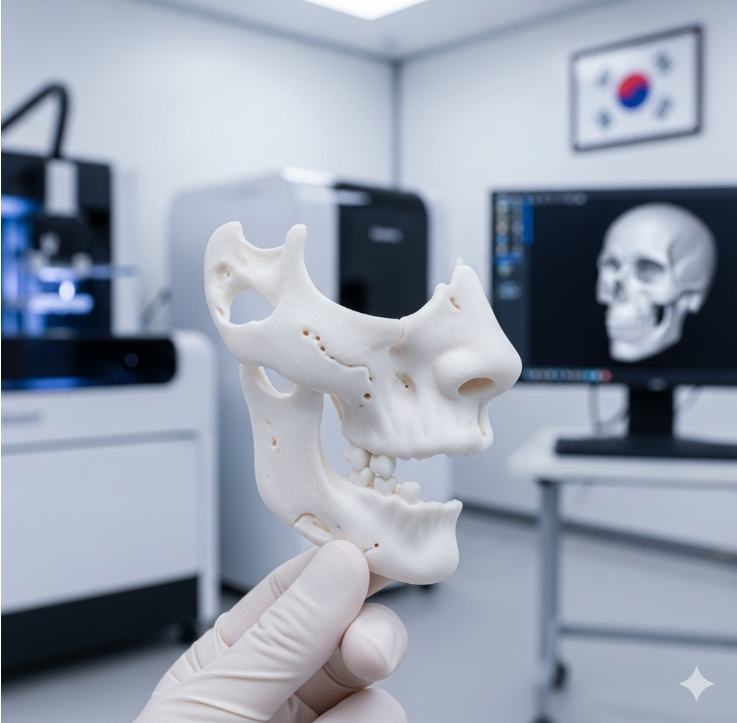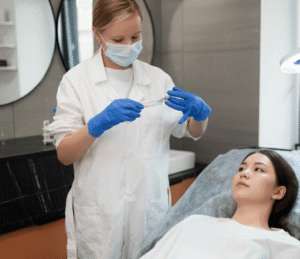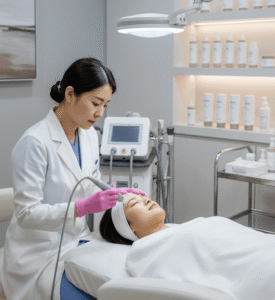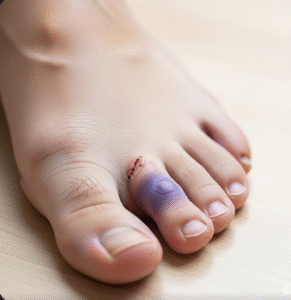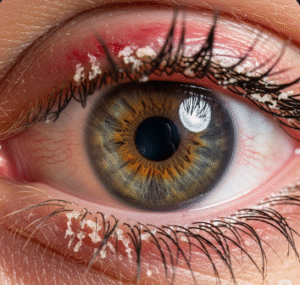What It Is
Custom 3D facial implants are individually designed implants created using advanced 3D imaging and printing technology. Unlike standard implants, which come in fixed shapes and sizes, custom implants are tailored to a patient’s unique bone structure and facial proportions.
In Korea, surgeons use CT scans, 3D modeling, and computer-aided design (CAD) to create implants that provide precise corrections for facial asymmetry, volume deficiencies, or contour enhancement. These implants can be made from silicone, Medpor, or other biocompatible materials.
Why It’s Done
Patients choose custom 3D implants for:
- Facial contouring: Enhancing the chin, jawline, cheeks, paranasal area, or temples
- Correcting asymmetry: Treating congenital conditions or post-traumatic deformities
- Reconstructive purposes: After injury, tumor removal, or previous unsuccessful surgeries
- Aesthetic refinement: Achieving sharper, more defined, and proportionate features
This approach is ideal for patients seeking natural results with precise symmetry and balance.
Alternatives
- Standard implants (chin, jaw, cheek, paranasal): Widely used but less personalized
- Fat grafting: Uses the patient’s fat for soft tissue enhancement, but partial absorption may occur
- Dermal fillers: Non-surgical and temporary option for mild contouring
- Orthognathic surgery: For skeletal correction when major bone repositioning is needed
Custom implants are the most suitable option for patients who need precise correction and long-term stability.
Preparation
Preparation for custom 3D implants in Korea includes:
- Consultation: Facial analysis and discussion of goals with a plastic surgeon
- CT scan: High-resolution imaging to map facial bone structure
- 3D design: Computer modeling to design implants tailored to the patient’s anatomy
- Material selection: Silicone for smooth contouring, Medpor for tissue integration, or other advanced biomaterials
- Medical evaluation: Blood tests and anesthesia clearance
- Lifestyle adjustments: Avoid smoking and alcohol for several weeks before surgery
How It’s Done
The procedure is performed under general anesthesia and typically lasts 2–4 hours, depending on the number of implants.
- The surgeon makes hidden incisions (inside the mouth or hairline) to avoid visible scarring
- A pocket is created to fit the implant precisely
- The custom implant is inserted and secured in place, ensuring symmetry and stability
- The incisions are closed with fine or dissolvable sutures
Recovery
Recovery is usually straightforward but varies depending on the extent of surgery:
- First week: Swelling, bruising, and mild discomfort are common
- Stitches: Removed in 7–10 days or dissolve naturally if placed inside the mouth
- Daily activities: Light activities can be resumed within 5–7 days
- Final results: Become visible as swelling subsides, usually within 1–3 months
- Longevity: Results are permanent, though revision is possible if desired
Possible Complications
While highly safe in expert hands, risks include:
- Infection or bleeding
- Implant shifting or asymmetry
- Prolonged swelling or numbness
- Rare allergic reaction to implant material
- Need for revision surgery in rare cases
Treatment Options in Korea
Diagnosis
- High-resolution CT scanning and 3D facial analysis
- Virtual simulation of before-and-after results for patient approval
Medical Treatments
- Pain relief and antibiotics after surgery
- Oral rinses for incisions inside the mouth
Surgical or Advanced Therapies
- Custom chin and jawline implants: For sharper lower-face definition
- Custom cheek or paranasal implants: To restore youthful midface projection
- Custom temple or forehead implants: To correct hollowing or asymmetry
- Combined procedures: Often performed with rhinoplasty, genioplasty, or fat grafting for complete harmony
Rehabilitation and Support
- Scar-free recovery due to hidden incisions
- Scar management if external incisions are required
- International patient services including translation, hospital navigation, and virtual follow-ups

